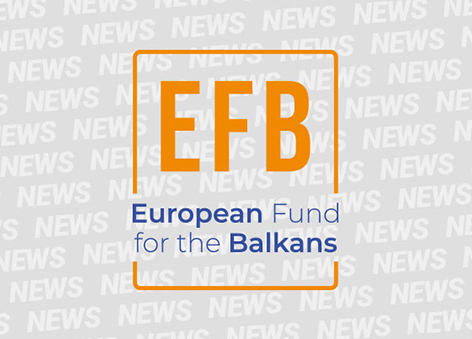
The seventh generation of fellows within the European Fund for the Balkans' fellowship program for young civil service leaders gathered for the Introductory Seminar, which took place in Berlin and Potsdam (Germany) from April 17 to April 25, 2015.
The Fellowship Programme, entitled “Fellowship Programme for Young Government Officials from the Western Balkans: Supporting Excellence and Leadership in Governance”, provides 20 scholarships for civil servants from Albania, Bosnia and Herzegovina, Croatia, Kosovo, Macedonia, Montenegro and Serbia. Fellows will spend three months in various countries of the European Union, where they gain work practice in federal or state government agencies of the host countries, receive tailor-made training through specifically designed seminars, and experience national, international and intercultural exchange. This year the fellows will be hosted in Austria, France, Germany, Ireland, Italy, Portugal, Spain, Sweden and the United Kingdom.
To conduct the seminar, for seven consecutive years the European Fund for the Balkans has combined forces with the “Potsdam Center for Policy and Management” (PCPM) at the University of Potsdam, one of the leading competence centres for governance and the public sector in Germany.
The Seminar began with presentations by Iveta Radicova, former Prime Minister of the Slovak Republic (Democratic Party), Special Advisor to the EU-Commissioner for Justice, Consumers and Gender Equality, Richard von Weizsäcker Fellow at the Robert Bosch Academy; and by Jurgen Neyer, Professor for European Politics, European University Viadrina, Frankfurt (Oder), who encouraged discussion about reaching the tipping point in Europe.
Debate continued with an exploration of the latest developments related to EU enlargement to the Western Balkans by Sonja Licht, President of the Belgrade Fund for Political Excellence and Richard von Weizsäcker Fellow at the Robert Bosch Academy and by Kristof Bender, Deputy Chairman of the European Stability Initiative (ESI).
The Introductory Seminar also included the skills-training sessions focused on presentation skills.
Sabine Kuhlmann, Professor of Political Science, Administration and Organization at the University of Potsdam introduced fellows to the work of the National Regulatory Control Council and its role in the German government`s efforts to reduce bureaucracy.
Fellows also had the chance to visit the German Foreign Office and to learn more about the German political position regarding the Western Balkans. They then visited Bundestag (German Parliament) before continuing their seminar sessions in Potsdam.
Beyond the actual seminar, the course programme provided opportunities to get to know Berlin and Potsdam, for socialising and for networking in order to enrich the intercultural experience and to broaden the learning process.






